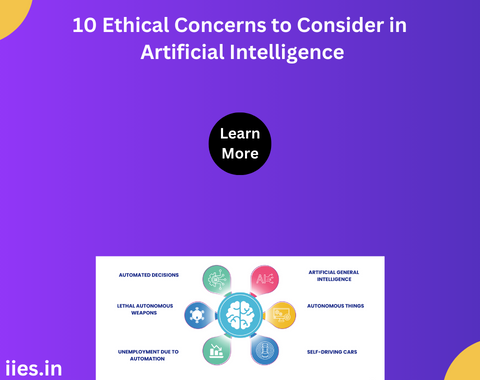Privacy and Data Security:
The widespread use of AI involves the collection and analysis of vast amounts of data. This raises concerns about individual privacy and the potential misuse of sensitive information. Striking a balance between harnessing the power of data for AI advancements and protecting individuals’ privacy is a critical ethical consideration.
Transparency and Explainability:
AI models, especially deep learning algorithms, are often regarded as “black boxes” due to their complexity. Lack of transparency raises concerns about accountability and the ability to explain the decision-making process of AI systems. Ensuring transparency in AI models is essential for building trust among users and stakeholders.
Autonomous Systems and Accountability:
The rise of autonomous AI systems, such as self-driving cars and drones, raises questions about accountability in the event of accidents or unintended consequences. Determining who is responsible for the actions of autonomous systems and establishing legal frameworks for accountability is a critical ethical consideration.
Job Displacement and Economic Inequality:
The increasing automation of tasks through AI has the potential to displace jobs, leading to economic challenges and inequality. It is crucial to address the societal impact of AI on employment and develop strategies to mitigate the negative consequences, such as reskilling and upskilling programs.
Malicious Use of AI:
As AI technology becomes more accessible, there is a growing concern about its malicious use. AI can be exploited for cyber attacks, misinformation campaigns, and other harmful activities. Ethical considerations include developing safeguards to prevent the misuse of AI for malicious purposes.
Accountability and Bias in Decision-Making:
AI systems are increasingly involved in decision-making processes, ranging from loan approvals to criminal justice. Ensuring accountability in these decisions and addressing biases that may arise is crucial to prevent discriminatory outcomes and maintain societal trust in AI applications.
Environmental Impact:
The computational power required for training sophisticated AI models has a significant environmental impact. Large-scale AI operations contribute to increased energy consumption, leading to concerns about sustainability. Developing energy-efficient AI models and exploring green AI initiatives are ethical imperatives.
Ethics of AI in Healthcare:
The integration of AI in healthcare presents unique ethical challenges. Issues such as patient consent, data security, and the potential for biased medical diagnoses must be carefully navigated. Striking a balance between technological advancements and ethical healthcare practices is paramount.
Autonomous Weapons and Warfare:
The development of autonomous weapons powered by AI raises serious ethical concerns related to the potential for misuse and loss of human control. International collaboration and the establishment of ethical guidelines are essential to prevent the deployment of AI in ways that could lead to widespread harm.
Ethical Considerations in Artificial Intelligence: A Comprehensive Exploration
The rapid evolution of artificial intelligence (AI) has propelled us into a future where machines are becoming increasingly autonomous and capable of making complex decisions. As we delve deeper into this era of technological advancement, it is imperative to scrutinize the ethical implications that accompany the rise of AI. Beyond the initial ten ethical concerns, let’s delve into additional considerations that demand our attention.
Informed Consent in AI:
The ethical dimensions of AI applications often intersect with the concept of informed consent. Users may not fully comprehend how their data is utilized by AI systems. Ensuring that individuals are adequately informed about the purpose and consequences of AI data usage is vital for maintaining ethical standards.
Cross-Cultural Ethical Standards:
AI systems are deployed globally, and ethical standards may vary across cultures. Establishing a universal ethical framework that respects diverse perspectives is essential. Recognizing and addressing cultural nuances in AI development can help avoid inadvertently imposing biases or values onto different communities.
Human-AI Collaboration:
The ethical integration of AI involves striking a balance between automation and human involvement. Over-reliance on AI without human oversight can lead to unintended consequences. Encouraging collaboration between humans and AI systems ensures responsible and accountable decision-making.
Long-Term Impact Assessment:
The long-term societal impact of AI advancements is challenging to predict accurately. Ethical considerations extend to the need for continuous assessment and reassessment of AI’s impact on society, with a commitment to adjust policies and regulations accordingly.
Educational Ethics in AI:
As AI becomes increasingly prevalent, ethical considerations must be incorporated into education and training programs. Preparing the current and future workforce with a strong ethical foundation in AI development and usage is crucial for responsible innovation.
AI and Mental Health:
The deployment of AI in mental health applications raises ethical concerns related to user privacy and the potential for exacerbating mental health disparities. Striking a balance between providing valuable support and maintaining ethical boundaries is imperative to protect individuals’ well-being.

